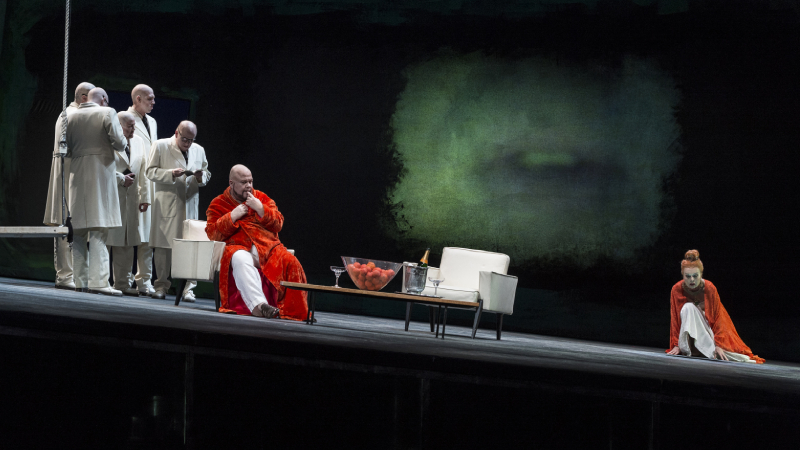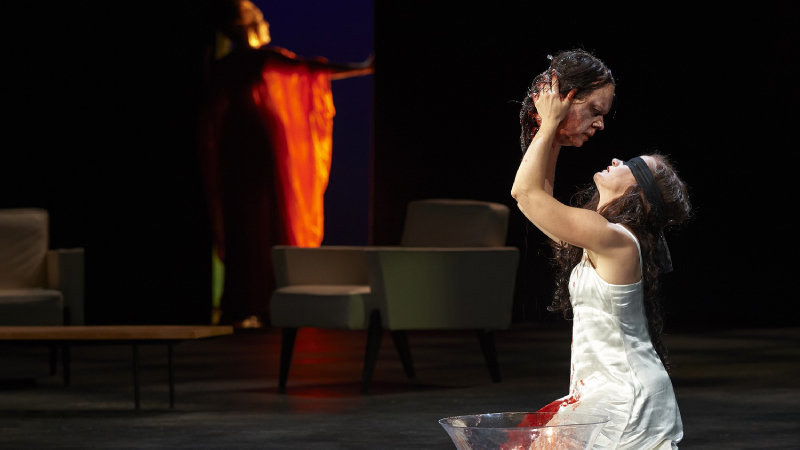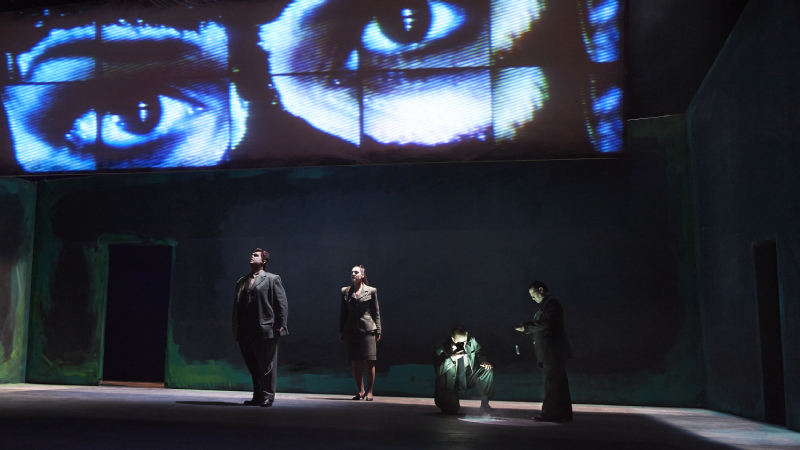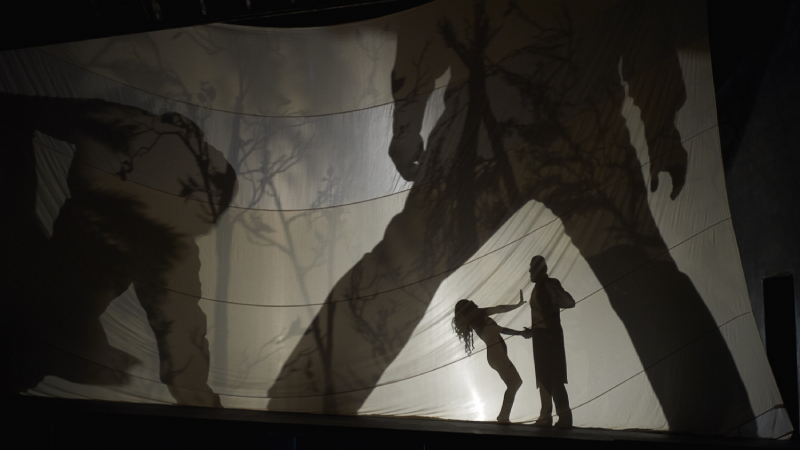Following up on last season’s dazzling digital production of Bartók’s
Bluebeard’s Castle, Academy Award-nominated director Atom Egoyan returns to the scene of his first-ever COC production this winter—Richard Strauss’ haunting masterpiece,
Salome.
A groundbreaking thriller shocking audiences with each new staging,
Salome rushes audiences headlong into a twisted tale of power and revenge. Strauss redefined musical storytelling with this operatic twist on a controversial Oscar Wilde play, retelling the Biblical story of John the Baptist’s martyrdom through the perspective of one of opera’s most iconic characters—the titular Salome, stepdaughter of King Herod. The young royal’s dark obsession with Jochanaan (John the Baptist) sets the stage for an infamous dance, a macabre kiss, and an explosive finale.
Join us for opening night on Friday, February 3!BUY TICKETS
Egoyan’s Salome
serves as a natural hybrid between his film and stage work, building on Strauss’ fascination with voyeurism through multiple layers of looking. Indeed, the Canadian Opera Company first approached Egoyan to direct the work after his 1994 smash hit
Exotica, aligning Egoyan’s own exploration of an obsessive gaze—shared in the film between a nightclub dancer and her male client—with the tragic consequences of such all-consuming looking in Salome.
Debuting in 1996, Egoyan’s production followed Strauss’ gaze down to disconcerting psychological depths. Rather than a first-century palace in Judea, Egoyan set the action in an abstract and foreboding environment, something between a spa and a sanatorium. Acclaimed designer Derek McLane built the set around a diagonal plane tilted at a dangerously steep angle, with Jochanaan imprisoned underneath the floorboards instead of the subterranean cistern in which he’s traditionally kept. Characters compulsively observe others, or are being looked at themselves—players in a complicated game of frustrated desire. “The Page is obsessed with Narraboth, who doesn’t return her gaze,” notes Egoyan, “while Narraboth is obsessed with Salome, who doesn’t return his gaze; and Salome is obsessed with Jochanaan, who doesn’t return her gaze.”

This complex network of looking underlines a looming sense of surveillance within the opera. Camera-wielding guards patrol the stage with their modern technology directing a collective gaze towards Salome, whose introduction to the audience arrives in a series of unsettling filmed images set in a spa’s mud baths. Employing her own penchant for surveillance, Salome then turns the audience’s attention to Jochanaan—a large video screen positioned behind the singers shows a live feed of his mouth in close-up. This disembodied projection anticipates Salome’s fetishistic dissecting of Jochanaan’s body parts—skin, hair, mouth—into isolated objects of desire, while simultaneously foreshadowing the prophet’s actual decapitation.

Of course, the opera’s most well-known moment of looking is the Dance of the Seven Veils, described by Egoyan as “the most famous striptease in history.” In the director’s innovative interpretation, home movies of the young Salome project on a screen created by the billowing skirt of the princess. This moment depicts her as a young girl in a world of paper dolls, powerfully contrasted by a disturbing act played out in shadows: the assault of Salome by a group of men, overseen by her stepfather Herod.
“[Violence] doesn’t come out of nowhere,” Egoyan observes, “and we’ve seen that with abuse victims: there is a repetition of the way that they have been treated.” This vision of the dance thus places Salome’s demand for Jochanaan’s head within a seemingly inescapable cycle of violence, rather than as an isolated horrifying act. Instead of showing a prototypical femme fatale—“an unbridled sexuality that leads to ruin,” as Egoyan says—the production depicts an “abused, traumatized character.” The results carry a sobering impact. Egoyan’s production asks us to understand how abuse and trauma, surveillance and obsession, can perpetuate with such horrific impact.
Experience Egoyan’s twist on the Richard Strauss masterpiece,
Salome, opening Friday, February 3, 2023. The show runs February 3, 5, 9, 11, 17, 19, and 24.
Tickets on sale now!
Photos (1, 2, 4): Michael Cooper, (3): Chris Hutcheson




